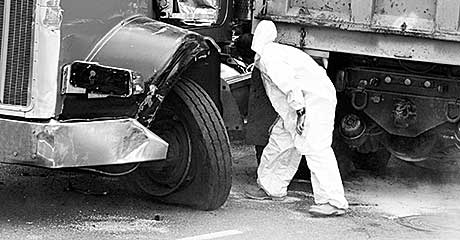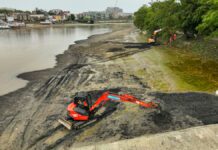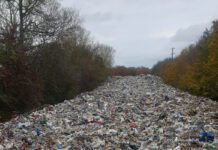
Transport related spills can occur almost anywhere – in depots, at customers’ yards, from loads in transit and leaks from the vehicles themselves. Understanding the risk and planning for incidents is crucial, argues Andrew Lawrence of Empteezy.
THE Environment Agency recorded over 500 incidents in England and Wales involving transport, cargo, storage and distribution during 2009 with environmental pollution – which is a criminal offence even if it’s as a result of accidental release – incidents resulting in many cases.
It goes without saying that it’s of paramount importance to understand all the hazards and potential risks in your operation to allow an evaluation to be made about what actions and training needs to be put in place. This process should be carried out on a regular basis to incorporate any new or changed operations and typically should include areas such as:
• All vehicles on site including battery operated versions
• All vehicle-related activities such as refuelling (including Adblue), wash down, cleaning and maintenance and servicing
• Storage and disposal of all the new and used products required to maintain your fleet; oil, coolant, lubricant, chemicals, fuel, batteries, tyres brake pads etc
• Goods in storage and on vehicles
• On site catering facilities, including storage and disposal of new and used cooking oil
Having understood what products you have on site or in transit is only part of the process; you also need to understand your site drainage system, both surface and foul water to allow you to know where a spill can flow to. How would you seal drains on your site in the event of an incident?
It isn’t always the size of the spill that determines its seriousness; small amounts of ‘the wrong’ product accessing a water course or causing ground contamination can just as easily cause major harm to the environment.
For a comprehensive plan to work you must include your vehicles leaving site and how you will respond to emergencies that may happen on the open road or on your customer’s premises.
The process of carrying out a risk assessment can be time-consuming and it can be easy to miss areas that you would not necessarily associate with spills. Failure to implement and action appropriate plans will at some point lead to a pollution incident with the potential result being prosecution with fines and/or imprisonment, clean-up costs, increased insurance premiums (or even a refusal to renew), financial penalties from customers or even the loss of a contract as a result of adverse publicity. Utilise the experience of others. An ‘outside’ pair of trained eyes will at the very least confirm what you already know but more often than not, see something that has become commonplace to you.
One of the critical areas not to overlook when assessing your spill hazards is the involvement and training of your staff – they are pivotal to a successful plan. By involving and encouraging ownership by the people who are likely to encounter an incident you will minimise the risk of it occurring in the first place. The best-written plan is nothing without the full understanding and backing of the people who will action it.
Don’t forget to discuss any plans you make with your insurance provider, they will often have a view on the direction you should take and a decision taken without consulting them could increase your premiums or invalidate a claim.
The bottom line is, you have a responsibility to plan and train for all eventualities on your site, your customer’s site and while your vehicles are on the road.
Empteezy is an ISO accredited manufacturer with 27 years experience in spill containment and spill control.
What causes road pollution?
Causes of road- and transport-related pollution incidents during 2009 were broken down into:
20% resulted from illegal and poor practice
19% as a direct result of a road traffic accident
18% from accidental spills
12% from fires
9% poor management of equipment, materials, waste and facilities
4% poor management and control
18% other causes
[hr]
WHEN researching legislation and other information to help you plan don’t forget to utilise the UK agencies whose role it is to ‘police’ the environment. The agencies are a good source, providing invaluable advice on reducing risk and improving environmental performance.
On those sites you will find Pollution Prevention Guidelines (PPGs) that cover legal and good practice requirements including:
Oil storage PPG 2
Refuelling facilities PPG 7
Vehicle washing and cleaning PPG 13
Pollution incident response planning PPG 21
Incident response – dealing with spills PPG 22
Go to:
environment-agency.gov.uk
sepa.org.uk
doeni.gov.uk/niea






